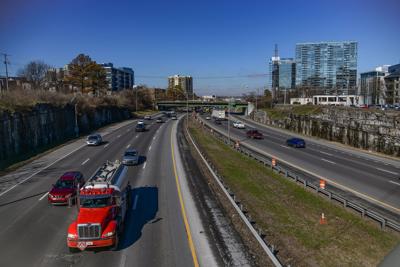Gov. Bill Lee’s Transportation Modernization Act is making early moves through the General Assembly. The bill passed in the House Transportation Committee Tuesday by voice vote, and in the Senate Transportation and Safety Committee Wednesday by a slim margin of 5-4. Three Republican senators joined Sen. Heidi Campbell (D-Nashville) in voting against the bill.
The bill, which aims to solve Tennessee’s estimated $26 billion in infrastructure needs, proposes a new funding structure for road projects. Proponents say it would cut average project times from 15 years to five years through public-private partnerships, and the plan has been endorsed by 13 chambers of commerce from around the state.
In these partnerships, the state would lease land to private companies, who would build additional “choice lanes” onto already existing highways. To access these lanes, drivers would have to pay what the legislation's supporters are calling “user fees,” which would go toward paying back the private companies. Advocates are extremely adamant that these are not toll roads. Critics have pointed out that there is little difference aside from semantics.
Advocates for the bill say that because private companies are taking on building these toll lanes, which would mostly be in urban areas, the Tennessee Department of Transportation would have more bandwidth to work on projects in rural areas, such as widening highways.
This legislation comes as a response to the continued decrease in revenue made available through gas taxes, which over the past century have not been raised enough to keep up with inflation. On top of the public-private partnerships, the bill would also increase registration fees on electric vehicles to create parity with what gas-vehicle drivers pay in gas taxes.
The bill also proposes $3 billion of funding for projects across the state, but skeptics point out that the funding allotments are uneven, and would shortchange Nashville — which some see as another instance of the state punishing Davidson County.





